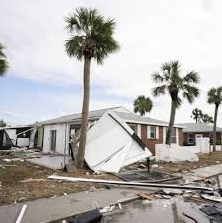
Experts Urge European Governments to Strengthen Protections as Vulnerable Populations Flee War
Campaigners have raised serious concerns that Ukrainian refugees fleeing the ongoing Russian conflict are at a “severe risk” of being exploited by human traffickers. Criminal gangs are reportedly waiting to capitalise on the crisis by trafficking vulnerable individuals across European borders and into exploitative industries.
Over 660,000 Ukrainians have already crossed borders into neighbouring countries such as Poland, Moldova, Romania, Slovakia, and Hungary, with estimates suggesting this number could soon rise to 1 million. The European Union predicts that up to 7 million people may ultimately be displaced due to the war.
Charity Care has warned of a sharp increase in trafficking cases over the coming months, with evidence that criminal networks are already established in nearby regions and are prepared to exploit the chaos. Lauren Agnew, a human trafficking policy expert with the organisation, described the situation as “deeply alarming,” stressing that governments across Europe must be vigilant in addressing these risks.
Agnew explained that traffickers sometimes lure Ukrainian refugees by offering border crossings or relocation assistance, later coercing them to repay the costs—often leading victims into debt and further exploitation. She called for European governments to heighten preventative measures and for the UK to strengthen domestic protections against modern slavery as the number of potential victims is expected to rise.
The International Justice Mission (IJM) in Romania has also highlighted the increased risks associated with the conflict. In a recent social media statement, IJM emphasised that as vulnerabilities grow, proactive steps are being taken, including awareness campaigns in both Ukrainian and Romanian, to help victims find support.
Kate Roberts, head of policy at Focus on Labour Exploitation, urged the UK government to offer safe passage routes for refugees rather than forcing them into dangerous and irregular migration paths. She specifically called for the removal of Clause 11 from the Home Office’s Nationality and Borders Bill, which would criminalise refugees arriving in the UK through unauthorised routes, increasing their chances of being exposed to exploitation.
Clause 11 would penalise asylum seekers entering the UK via small boats, stowing away, or other irregular methods. These individuals would face potential imprisonment or temporary legal status without access to essential services like benefits or family reunification.
In response, a Home Office spokesperson reaffirmed the UK’s commitment to addressing human trafficking, stating: “The government is committed to tackling the heinous crime of human trafficking. We will continue to clampdown on those who continue to exploit vulnerable people while providing tailored support for victims to help their recovery.”
The Home Office continues to monitor the situation in Ukraine closely and maintains ongoing dialogue with the Ukrainian government to respond to the crisis.












